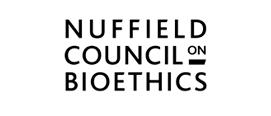- View more resources from this publisher
 Nuffield Council on Bioethics
Nuffield Council on Bioethics
Case Studies in Biofuels Production *suitable for home teaching*
The resources aim to help students consider the advantages and disadvantages of different types of biofuels that are being produced or may be produced in future as renewable sources of energy for transport. Using these resources, students will begin by learning about the different types of biofuels that are being produced as alternative renewable sources of energy. They will explore the advantages and disadvantages of these different types of biofuels, and begin to make comparisons.
The resources have been created and trialled as a cross-curricular exercise for whole classes or larger student groups at Key Stage Three and above.
The resources were developed by a team of teachers at Graveney School in South London, coordinated by Rebecca Ward, a member of the Council’s Education Advisory Group.
These materials are based on the Nuffield Council on Bioethic's 2011 report: Biofuels: ethical issues.
Show health and safety information
Please be aware that resources have been published on the website in the form that they were originally supplied. This means that procedures reflect general practice and standards applicable at the time resources were produced and cannot be assumed to be acceptable today. Website users are fully responsible for ensuring that any activity, including practical work, which they carry out is in accordance with current regulations related to health and safety and that an appropriate risk assessment has been carried out.
Downloads
-
Biofuels: lesson introduction 45.07 KB
-
Biofuels: lesson plan 48.57 KB
-
Biofuels: examples 157.74 KB
-
Biofuels: summary worksheet 43.38 KB
-
Biofuels: the sales pitch 73.13 KB
-
Biofuels: diamond rank 122.6 KB
-
Biofuels: case studies 152.62 KB
-
Biofuels: slides 358.5 KB




